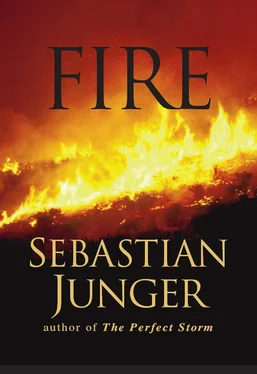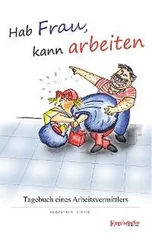Throughout the countryside, Greek Orthodox churches have been either boarded up or retrofitted to serve as mosques, and with a frequency that defies coincidence, Orthodox shrines have the bad habit of occupying vitally strategic land, cordoned off behind barbed wire in militarily restricted zones and off limits to all outsiders. With those Greek monuments that the government simply cannot remove from view—like the beautiful little Monastery of Apostolas Varnavas (St. Barnabas) on the Mesaoria plains, one of the most important Orthodox sites on the entire island—they seem to rely on more subtle discouragement; although two major highways in the TRNC pass close by, neither posts signs to the monastery.
To fill up this landscape, with all its vestiges of Hellenistic culture, and to fill up all the formerly Greek villages that were abandoned after the invasion—after all, only 40,000 people moved north to replace the 175,000 who moved south—the TRNC has energetically tried to woo others to move in. Most controversial have been the “Turkish settlers,” thousands of peasants from Anatolia, one of the poorest regions in mainland Turkey, who have taken over entire villages on the Mesaoria and built new towns in the flatlands below Famagusta. Socially conservative and largely uneducated, the settlers are looked down upon by the far more liberal and cultured native Turkish Cypriots, and are a source of rage for Greek Cypriots, who see them as interlopers illegally occupying old “Greek land.”
At the other extreme are the expatriates, mostly British and Germans, who either have taken up permanent residence in the TRNC or maintain summer homes here, and nowhere is their privileged status more in evidence than in the picturesque village of Karmi. Nestled in the Kyrenia Mountains overlooking Five-Mile Beach, Karmi was a Greek Cypriot village until 1974; today it is “European only” by law, meaning that not just Greeks and mainland Turks are forbidden to own property there but Cypriots as well. Over a game of pool at the cozy Crow’s Nest pub, the owner, a good-natured Brit named Steve Clark, explains how that came about.
“Well, once the Turks came ashore in ’74, the fuzzies [Greeks] all took off across the mountains—can’t say I blame them—and this place just fell apart. A few foreigners were living up here, and they finally got together and went to Denktash and said, ‘The only way this village is going to come back is if you make it all European.’ Denktash agreed, and that’s the way it has been ever since.”
Given twenty-five-year leases in return for renovating the village’s dilapidated homes, the “Europeans” quickly transformed Karmi into a reasonable facsimile of a Cypriot hill town, if a bit abundant with flower boxes and cute house names. To judge by the minutes of their last town meeting—tacked up in an announcement box on the main square right next to the old Greek church—the residents’ most pressing concerns revolve around rising water bills, noisy dogs, and renters who play loud music. Oh, and the ongoing struggle to get their leases extended for another forty-nine years.
“President Denktash has done a lot for us—well, for the whole country,” says a slightly hammered Englishwoman at the Crow’s Nest, “but we’re having a very difficult time getting a clear answer on the leases.”
Although many of the other expatriates living along the north coast find the apartheid quality of Karmi distasteful, they share the sentiments of the town’s residents in at least one crucial aspect. Like determined expatriates everywhere, there is the tinge of the zealous convert about them. They tend to paint the Cyprus conflict in stark black and white: The Turks have done no wrong, are practically incapable of doing wrong; unification would be “a disaster, a holocaust”; the Greeks are lazy, scheming, vicious, never to be trusted. There is an anger, tinged with racism, to the “Europeans” that one rarely hears among the Turkish Cypriots, and many have directed that anger into lobbying politicians “back home” to grant full recognition to the TRNC, a point that will surely not be lost on President Denktash when the lease extension papers finally reach his desk.
Not surprisingly, the Greek Cypriots have seized on each one of these issues—the desecration of antiquities, the “flood” of Turkish settlers, the “illegal occupations” in Karmi—and added them to their Thousand Points of Plight campaign. For each one, though, Rauf Denktash has a quick and ready response.
As I listen to the president, I begin to wonder how many times he has answered these same questions, given the same lecture—to visiting diplomats, to journalists, to assemblies of his countrymen—and it finally dawns on me why he simply ignored my first question and led me back into history. Because there’s really nothing else to talk about. The current situation in Cyprus? Same as last year, same as twenty years ago. Albeit a Greek legend, there is something rather Sisyphean about Rauf Denktash. He has been saying essentially the same thing for twenty-five years, and no one but his choir has listened. The Greek Cypriots, the American and UN peace negotiators who periodically shuttle around the island have always looked for an angle, an opening, and there never has been one. Rauf Denktash is obdurate and unyielding and steeped in history because so are his people.
“Do you ever get tired of this?” I ask. “Hearing the same questions, giving the same answers? Do you ever think of just chucking it all and retiring to Switzerland?”
Denktash slips into a slight smile. “No. I feel it is part of my duty as president to get our message out to the rest of the world in any way I can. Of that I can never tire. And Switzerland is too cold.”
At the end of our long interview, as the president is walking me to the door, he suddenly veers over to a high bookcase. Standing on his tiptoes, he reaches up and pulls down an oversize paperback book and hands it to me. It is a collection of the photographs he has taken of his little domain over the years. I quickly leaf through it to show my appreciation—there are some nice portraits of villagers, others that look like standard postcards—and I think of the photograph I’ve seen of him, his camera strapped around his neck, watching the violent events of August 1996 unfold in the no-man’s-land outside Dherinia.
“If the situation in Cyprus was exactly the same fifty years from now,” I ask, “would that bother you?”
For the first time, Denktash seems caught slightly off guard. He glances over his bookshelf. “Well, I would like to think that at some point progress would be made, that other nations will recognize our legitimacy.”
“But you’ve found ways to work around that. You have security, you have a homeland. If nothing changed, would it bother you?”
He gives me a shrug. “Not really.”
Sebastian Junger
If you go to Cyprus, pretty soon you will hear about Pyla, a small town outside Larnaca where Turkish and Greek Cypriots live together in peace. The town falls entirely within the buffer zone, so neither side was able to claim it as its own. During the Turkish invasion both sides, at different times, sought protection from the UN, and today they still live together, under the shadow of an UNFICYP observation post. “Together” is a relative term, though. There are two mayors, two town halls, two post offices, two phone systems, and two cafés. There are, in effect, two towns, although Greek Cypriots invariably offer up Pyla as a shining example of bicommunal cooperation.
The other thing Pyla is famous for is fresh fish, a vestige of the black-market trade that once existed in the town. Since the TRNC isn’t a recognized country, it may ignore such niceties as import duties and copyright laws, allowing Turkish Cypriot merchants to sell Western knockoffs to Greek Cypriots at rock-bottom prices. Ten years ago Pyla boasted forty or fifty Turkish shops doing a booming business in leather jackets, designer jeans, cheap sunglasses, and basketball shoes, but Greek Cypriot authorities eventually cracked down on the cross-border trade, because any commerce with the TRNC, legitimate or otherwise, was seen as a de facto acceptance of an illegal government and therefore a violation of Greek Cypriot law. Besides, shop owners in Larnaca were losing business. Police started pulling cars over outside Pyla and confiscating illegal goods, and pretty soon the only thing left for sale was fish caught in the TRNC.
Читать дальше












